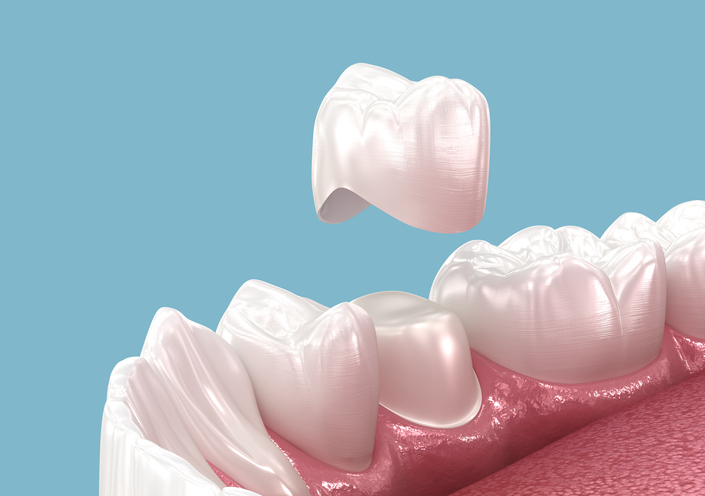Taking care of children's teeth is one of the most important steps toward a lifetime of healthy smiles. Pediatric dental care is not just about checking for cavities — it's about building good habits, reducing dental anxiety, and promoting overall health. As parents, caregivers, or even dental professionals, understanding the importance of dental care for kids helps ensure a future with fewer dental problems and more confident smiles.
👶 Why Pediatric Dental Care Matters
Children are constantly growing and developing, and that includes their teeth and jaws. Proper dental care from an early age lays the foundation for:
- Healthy permanent teeth
- Proper jaw alignment
- Good speech development
- Boosted self-esteem
According to the American Academy of Pediatric Dentistry (AAPD), children should visit a dentist by their first birthday or within six months of getting their first tooth. Early visits allow the dentist to catch potential problems early and educate parents on how to care for baby teeth.
🪥 Starting Early: Oral Hygiene for Infants and Toddlers
You might be surprised to learn that dental care begins even before the first tooth appears!
👶 For Babies:
- Gently wipe your baby’s gums with a soft, damp cloth after feedings.
- Once teeth emerge, use a soft-bristled baby toothbrush and a tiny smear of fluoride toothpaste (about the size of a grain of rice).
👧 For Toddlers:
- Brush their teeth twice a day with a pea-sized amount of fluoride toothpaste.
- Teach them to spit out the toothpaste after brushing (but not rinse with water).
- Avoid sugary drinks and prolonged bottle use — this can lead to “baby bottle tooth decay.”
🦷 Common Pediatric Dental Issues
Pediatric dentists are trained to treat a wide variety of dental issues in children, including:
1. Tooth Decay (Cavities) 🍬
Tooth decay is the most common chronic disease in children — more common than asthma! It's often caused by frequent snacking, sugary drinks, and poor brushing habits.
2. Thumb Sucking and Pacifier Use 👍
While common in infants, prolonged thumb sucking or pacifier use can affect the alignment of teeth and jaw development if it continues beyond age 3–4.
3. Teething Discomfort 😣
Teething can start around 6 months. Symptoms include drooling, irritability, and swollen gums. Chewing on cold teething rings or a clean, damp cloth can help.
4. Dental Trauma ⚽
Falls, sports injuries, or accidents can cause chipped or knocked-out teeth. Quick dental attention is essential to minimize long-term damage.

🧒 Making the Dentist Visit Fun!
Many children feel anxious about dental visits — and that’s normal! But there are ways to help them feel comfortable and even excited:
- Choose a pediatric dentist who specializes in working with children.
- Read books or watch videos about visiting the dentist.
- Let your child bring a favorite toy or stuffed animal to their appointment.
- Use positive language: say “the dentist will count your teeth” instead of “it won’t hurt.”
Creating positive experiences early on will make future visits much easier.
🍎 Nutrition and Dental Health
What your child eats has a big impact on their oral health.
Foods That Help:
- Fruits and vegetables (especially crunchy ones like apples and carrots)
- Cheese and yogurt (high in calcium and low in sugar)
- Water with fluoride (instead of sugary drinks)
Foods to Limit:
- Sugary snacks and candy
- Sticky foods like gummy bears and fruit snacks
- Acidic drinks like soda and sports drinks
Encourage healthy snacks and limit sugar intake, especially between meals. This not only helps their teeth, but also supports their overall health.
🛡️ Preventive Care Is Key
Pediatric dental care isn't just about fixing problems — it’s about preventing them before they start. Some important preventive measures include:
- Regular dental check-ups (every 6 months)
- Fluoride treatments to strengthen enamel
- Dental sealants on molars to protect against decay
- Orthodontic assessments by age 7
By investing in prevention, you save money, time, and discomfort down the road.
🦷 When Should You Be Concerned?
Call your pediatric dentist if your child:
- Complains of tooth pain or sensitivity
- Has bleeding gums
- Develops spots or discoloration on teeth
- Experiences a dental injury
- Has persistent bad breath
Prompt treatment helps avoid more serious problems later on.

❤️ Healthy Habits for a Lifetime
Teaching kids to care for their teeth isn’t just about today — it's about giving them skills that last a lifetime. Make brushing and flossing a family activity, model good behavior, and celebrate small wins (like a sticker chart for daily brushing).
By making oral health a priority from an early age, you're setting your child up for a lifetime of healthy, confident smiles.
📝 Final Thoughts
Pediatric dental care is more than just cleanings and checkups — it’s about building trust, teaching habits, and creating a strong foundation for lifelong oral health. With the right care, support, and guidance, every child can grow up with a smile they’re proud of. 😁
So, start early, stay consistent, and always make dental health a fun and rewarding journey for your child!






Comments